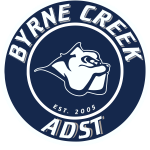
Staff Directory
| Business Education | ||
| LOVEDAY, James | Jim.Loveday@burnabyschools.ca | |
| Home Economics | ||
| CLEARY-DULAI, Jane | Jane.ClearyDulai@burnabyschools.ca | Foods & Textiles |
| HARRINGTON, Erin | Erin.Harrington@burnabyschools.ca | Foods & Textiles |
| ZAVERI, Kinjal | Kinjal.Zaveri@burnabyschools.ca | Foods & Textiles | Technology Education |
| BALOGH, Steven | Steven.Balogh@burnabyschools.ca | Construction Electrician Program |
| COOK, Steve | Steve.Cook@burnabyschools.ca | |
| MCKILLOP, Allison | Allison.McKillop@burnabyschools.ca | Department Head |
| Yearbook | ||
| MATHERS, Laura | Laura.Mathers@burnabyschools.ca | |